- Dr. Kristín Jónsdóttir Head of the Faculty of Education and Pedagogy will conduct the ceremony
- Dr. Jón Torfi Jónasson, Professeur à l'Université d’Islande (main supervisor)
- Dr. Jacques Audran, Professeur l'INSA-Strasbourg, France (co-supervisor)
- Dr. Lucie Mottier-Lopez, Professeure à Université de Genève (opponent*)
- Dr. Halla Bjørk Holmarsdottir, Professeure à l'Oslo Metropolitan University (opponent*)
- Dr. Richard Harris, Professeur l'University de Reading, UK (advisor in the doctoral committee)
* rapporteures
- Lieu : Reykjavík (Islande) - 16h, heure de Paris (14h, heure de Reykjavík) - Aula Hátíðasalur, Main Building
- Live Streaming (Doktorsvörn Beint Steymi) : https://livestream.com/hi/doktorsvornpascalemompointgaillard
Teachers learn important things together through talking. Conversation-based continued professional development (CPD) for teachers has been insufficiently researched. In the context of current policy and practice - that remains top-down and controlling in terms of educators’ autonomy and self-direction - more agile and transformative means of professional learning are key.
The research is a case study aiming to investigate the characteristics of the participation of education professionals (teachers, teacher educators, school heads…) from 50 European countries in an online professional learning community (OPLC) developed under the umbrella of Council of Europe’s Pestalozzi Programme (PP). The study is also interested in how online asynchronous conversation can be a sustainable mode of CPD helpful for the creation of democratic spaces for learning. It directs attention to the nature of the conversation, taking place in the online interaction, the details of which turn out to be of crucial importance. The study is based on activities and data, neither of which was planned or collected for research purposes. The data is composed of the transcripts of participants postings between 2012 and 2017, and the interactions that are contained in the dialogic space that is the PP platform. Therefore, the design of the study deals with the complexity and scope of the context and data, that brings in the international, intercultural composition of participants who arrive with different histories and perhaps engrained assumptions and norms; the professional development context that is unusual; the online set up that is also particular due to the conversational nature of its activities; and lastly the complexity of the issue of democracy in education which may not fit so easily in the school curricula, or the culture of school, or institution and their education aims. To address this complexity, the framework of ecology was chosen to cater to the many parts of the context and the relationships these entertain to form the environment of the OPLC. The framework of ecology and its analysis may inform on what affordances are observed for an OPLC to reach its full transformative potential for participating educators. It is helpful to consider these and to conceptualize conversation as a learning ecology that is conducive to engagement in online professional learning and development.
Transcripts of asynchronous discussion threads were analyzed, through thematic analysis and statistical treatment, to capture the structure and affordances of conversation-based online professional learning communities that foster the establishment of a learning ecology that is conducive to the development of democratic practices in educational settings. To answer this overall concern, three main research questions were identified and chosen to form the core of the investigation. The first question concerns the features of the collaboration to identify elements that support – or impede – co-construction of knowledge among participants. The second research question focuses on the discernible factors and conditions that foster participants’ motivation to engage and uses Self-Determination Theory (SDT) as a basis to investigate the data. The third research question is centered on participants’ mental models of what constitutes a democratic teaching practice, and how educators’ engagement in the conversation may support transformative action in the classroom.
The results highlight enabling behaviors that help regulate pace, cohesion, topical persistence, strong ties, and congeniality in the conversation to enhance the potential for meaning making and co-construction of knowledge. Two moderator-presences, ‘teaching presence ‘and ‘peer presence’, were found, thus the study enhances previous research on online presences (RQ1). Furthermore, eight factors were found to contribute to participants’ motivation to engage and remain active in the conversation, specifically: self-confidence in one’s practice, persistence towards attaining goals, sprightliness, inclusion, ethos, control, accountability, and curiosity. The SDT positing the need for competence, relatedness and autonomy was competed with a fourth need that is curiosity (RQ2). Finally, discursive alignments and tensions were found, that provoke a cognitive dissonance having the effect of helping participants to agree on objectives and seek ways to achieve more democracy in educational environments, which are not fundamentally democratic. As educators develop democratic dimensions, an ‘activist presence’ was found to be a response to these tensions (RQ3). Finally, concerning the overall question of affordances, the studied ecology and the responses to the RQs suggest a development leading to the establishment of five structures in the OPLC. An ethos structure, an affect and identity structure, a communication structure, and a power structure are revealed as shaping the relations between members. All participate in forming an ensemble of affordances of conversation based OPLCs fostering a learning ecology for the development of democratic practices in educational settings.
La soutenance aura lieu à l'Université d'Islande à 16h CEST (14h GMT). Transmission en streaming : https://livestream.com/hi/doktorsvornpascalemompointgaillard






